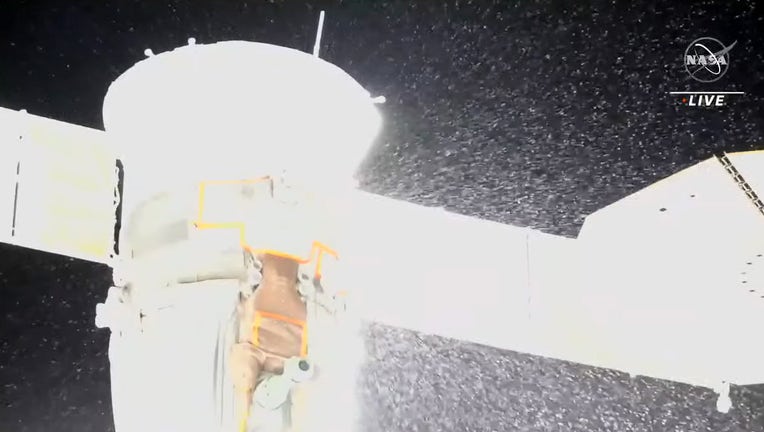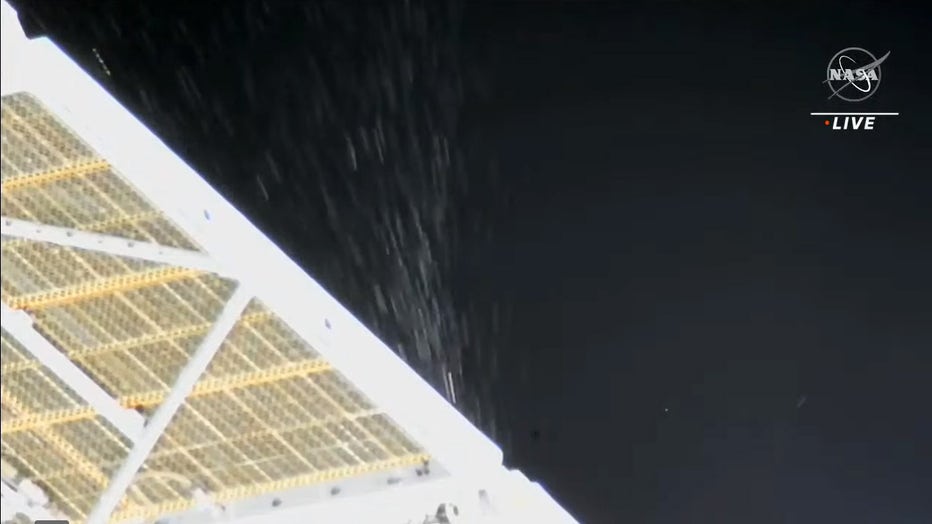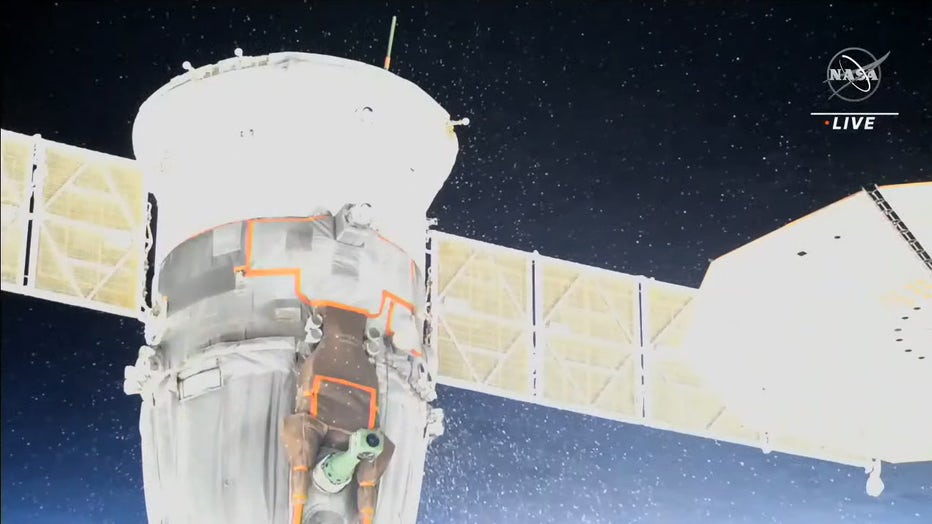Russian space capsule leak likely caused by micrometeorite

NASA TV image
MOSCOW - A coolant leak from a Russian space capsule attached to the International Space Station was likely caused by a micrometeorite strike, a Russian space official said Thursday.
Russia's space corporation Roscosmos and NASA both have said that the incident hasn't posed any danger to the station's crew.
Sergei Krikalev, a veteran cosmonaut who serves as the director of crewed space flight programs at Roscosmos, said the coolant leak from the Soyuz MS-22 capsule could have been caused by a meteorite striking one of its radiators. Krikalev said in a statement that the malfunction could affect the capsule's coolant system performance but doesn't endanger the crew.
The coolant leak prompted a pair of Russian cosmonauts to abort a planned spacewalk earlier in the day.

NASA TV image
Krikalev said Russian flight controllers were continuing to assess the situation and following temperature indicators on the Soyuz, but emphasized that "there have been no other changes in parameters on the Soyuz spacecraft and the station, so there is no threat for the crew."
"NASA and Roscosmos will continue to work together to determine the next course of action following the ongoing analysis," NASA said. "The crew members aboard the space station are safe, and were not in any danger during the leak."

NASA TV image
Just as Russian cosmonauts Sergey Prokopyev and Dmitri Petelin were about to venture outside the station on a planned spacewalk earlier Thursday, ground specialists saw a stream of fluid and particles on a live video feed from space, along with a pressure drop on instruments, emanating from the Soyuz capsule. Prokopyev, Petelin and NASA astronaut Frank Rubio used the capsule to arrive at the International Space Station in September, and it serves as a lifeboat for the crew.
Along with them, four other crew members are currently on the space outpost — NASA astronauts Nicole Mann and Josh Cassada, Japan Aerospace Exploration Agency's Koichi Wakata and Anna Kikina of Roscosmos.
RELATED: Europe's space agency picks first disabled astronaut recruit

